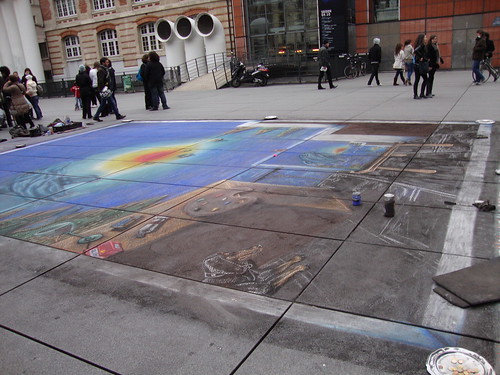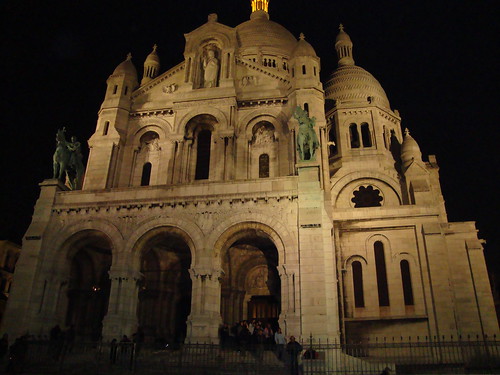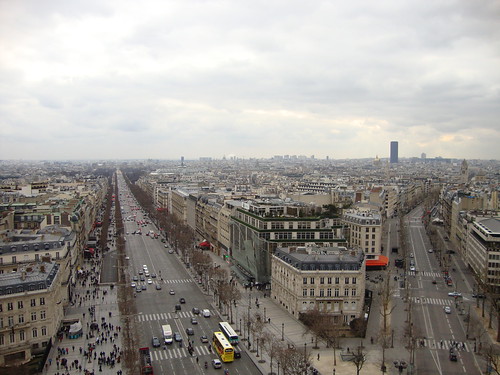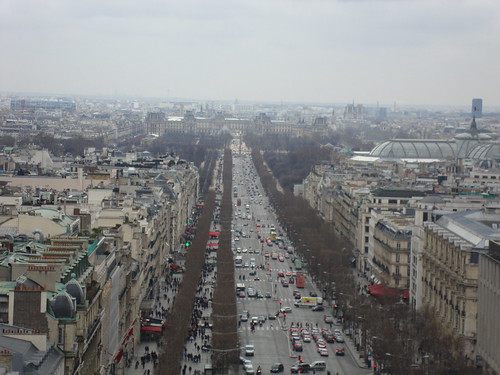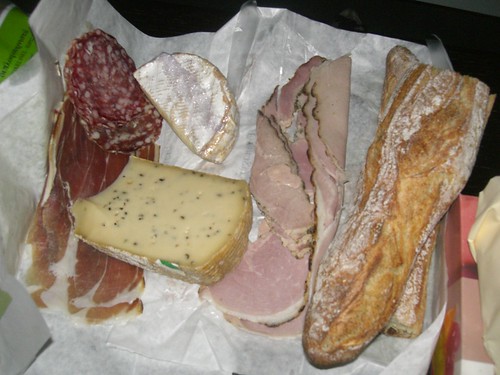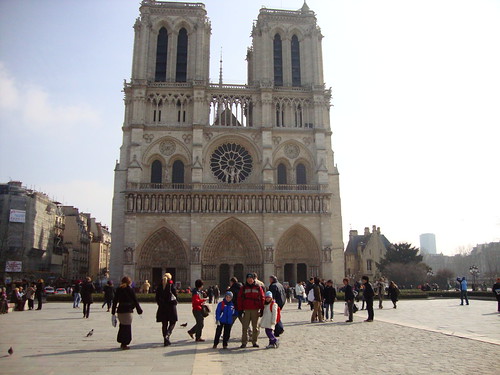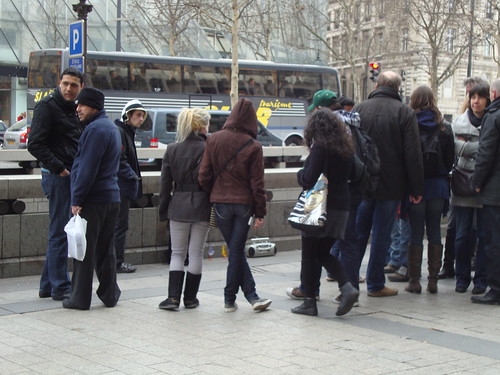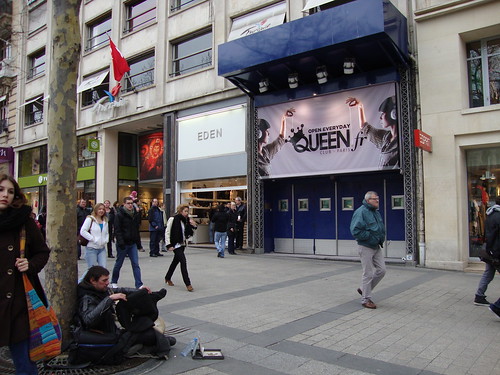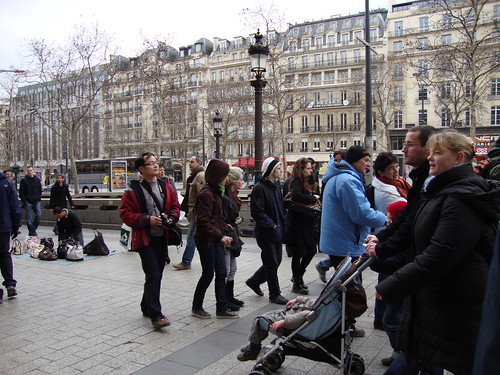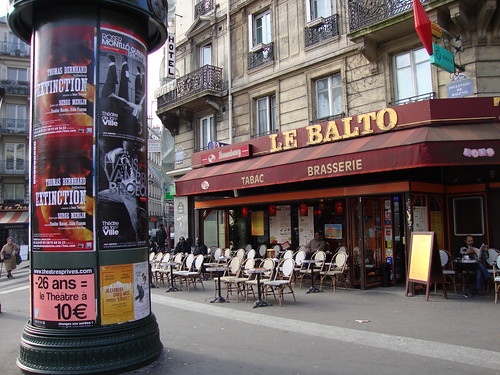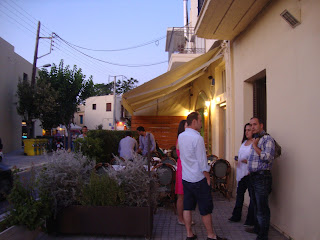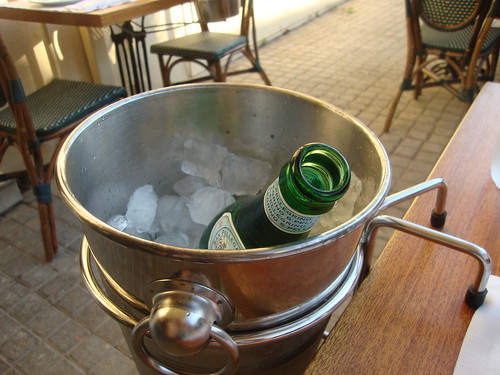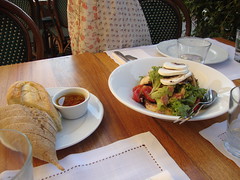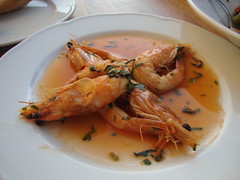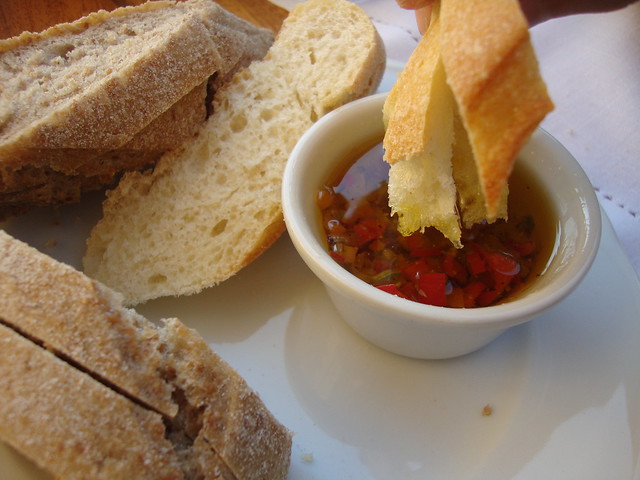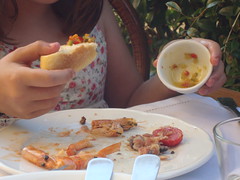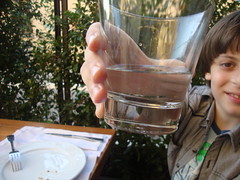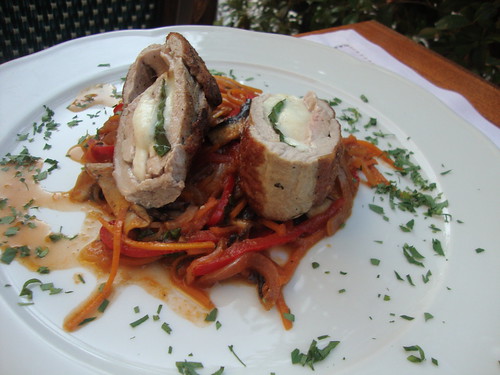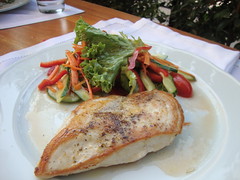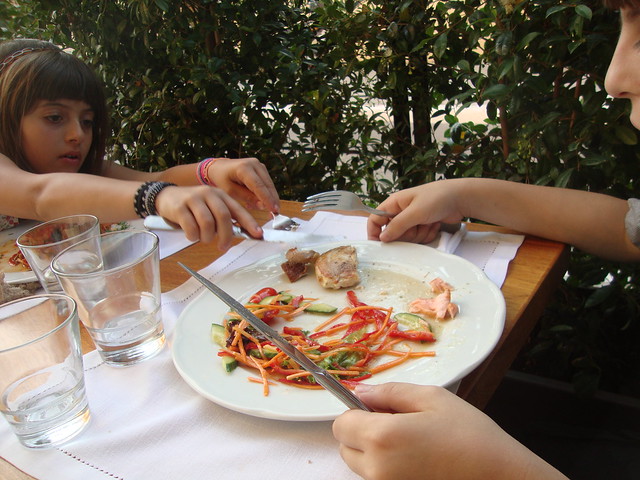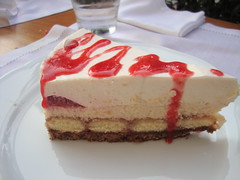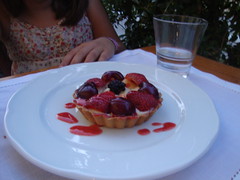I'm a bit of a σπιτόγατος, so I appreciated the offer of a friend last night to meet up with her in town. It was a mild winter's evening, quite a change from the very cold temperatures that we experienced over the Christmas and New Year period. The town was not at all enticing on this night as it had just started drizzling, it was rather dark, and there were hardly any people walking with us. Quite surprisingly, many of the cafes and restaurants were closed in the area where we were walking, which seemed strange, as one would think that this is the time when people would be out making merry. But the New Year's holiday was pretty much over, and the next day was a normal working Monday. We walked along one lonely street after another, often in the company of more stray cats than human beings. At one point, we stopped to admire the display at a clothes store. "Very chic!" we both agreed.
We continued to walk towards our destination which was a cafe located on a side street close to the cathedral of Hania. As soon as we entered Eisodion St, the atmosphere changed. The street was lined with cafes and tables, which were all looking quite full, despite the rain. Awnings had been placed on both sides of the street above the businesses, which shielded the patrons of the half dozen businesses that were doing brisk trade in the area. There were no empty seats indoors, so we took an outdoor table at Sketi Glyka where we had a great vantage point with the whole street in view.
The cafe has been open for about three years in Hania, and it has a good following. It's very popular among young people, with a reputation based mainly on the high quality French-style pastries made on the premises, which make it original to Hania. It is also popular as a dessert restaurant, and serves nice warm drinks to go with its sweet offerings.
These days, novel businesses that rely on local rather than tourist custom pay great attention to details like decor, a far cry from the plastic-lined paper tablecloth of the traditional Greek summertime taverna. Businesses in Hania constantly have to juggle between different tastes on extreme ends, something which proves difficult when the two different kinds of clientele are cohabiting the same space. It's easier to do this in the winter when the tourist go, and the town is taken back by the locals.
Our tourists from abroad - both Greek and non-Greek alike - decry the modernism of new-style Greek businesses, slandering them as blasphemously non-traditional in a 'traditional' country like Greece. They forget that the average Greek citizen is just as modern as they are, and seeks the same globalised lifestyle that they themselves are enjoying in tier respective countries.
All the while that I was sipping my chili-mango flavoured tea, I couldn't help feeling a little smug about having found a bit of Paris in my own hometown, without the threat of terrorism. Every country has its own problems, but that particular problem is not at all particular to Greece. No one is immune to terrorism, but our own form of home-grown terrorism is quite different to that of France.
Bonus photo: Christmas lights in Hania - Christmas isn't over for us here until Epiphany, and the post-Christmas sales start in mid-January, not Boxing Day.
©All Rights Reserved/Organically cooked. No part of this blog may be reproduced and/or copied by any means without prior consent from Maria Verivaki.
The cafe has been open for about three years in Hania, and it has a good following. It's very popular among young people, with a reputation based mainly on the high quality French-style pastries made on the premises, which make it original to Hania. It is also popular as a dessert restaurant, and serves nice warm drinks to go with its sweet offerings.
Our tourists from abroad - both Greek and non-Greek alike - decry the modernism of new-style Greek businesses, slandering them as blasphemously non-traditional in a 'traditional' country like Greece. They forget that the average Greek citizen is just as modern as they are, and seeks the same globalised lifestyle that they themselves are enjoying in tier respective countries.
All the while that I was sipping my chili-mango flavoured tea, I couldn't help feeling a little smug about having found a bit of Paris in my own hometown, without the threat of terrorism. Every country has its own problems, but that particular problem is not at all particular to Greece. No one is immune to terrorism, but our own form of home-grown terrorism is quite different to that of France.
Bonus photo: Christmas lights in Hania - Christmas isn't over for us here until Epiphany, and the post-Christmas sales start in mid-January, not Boxing Day.
©All Rights Reserved/Organically cooked. No part of this blog may be reproduced and/or copied by any means without prior consent from Maria Verivaki.














